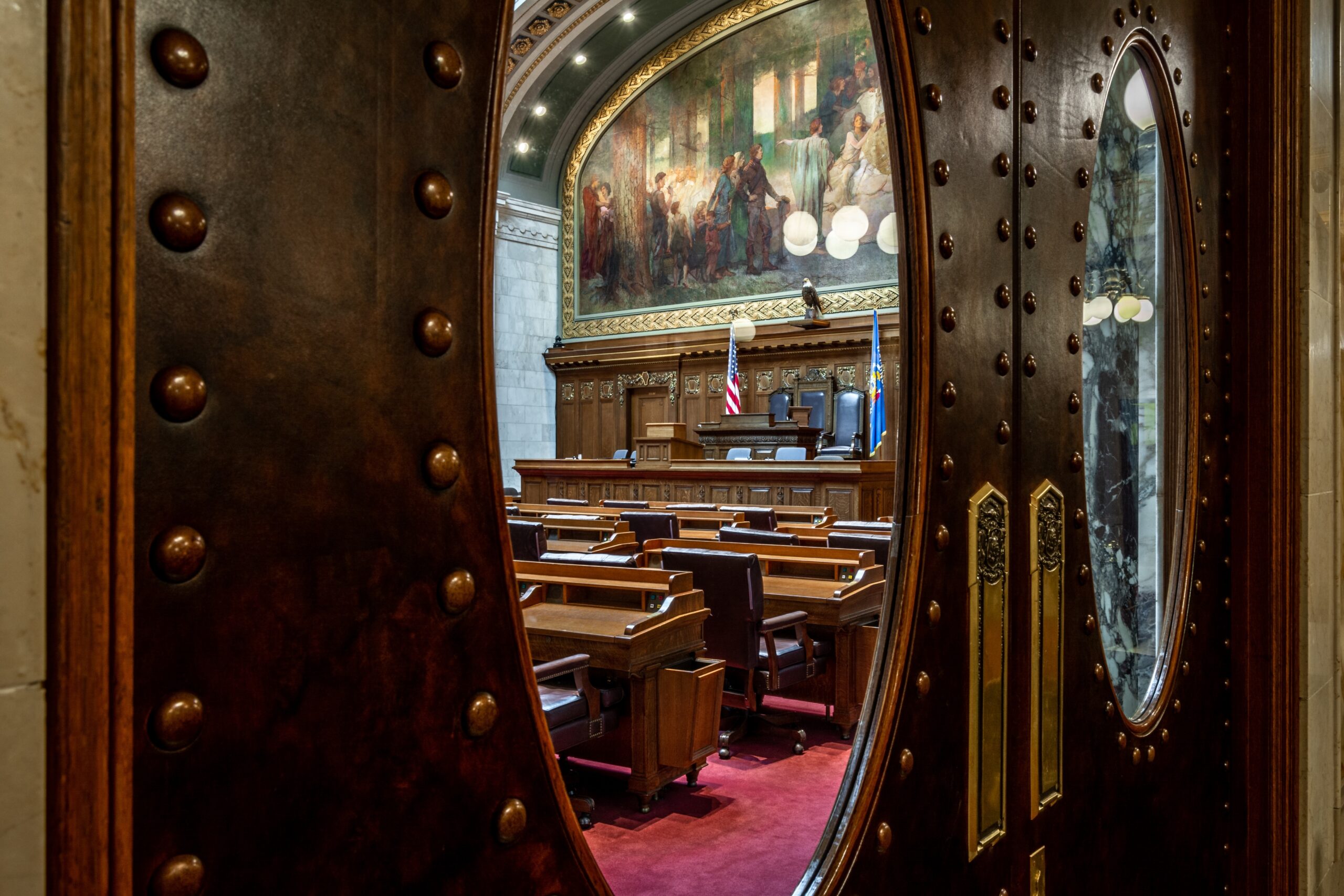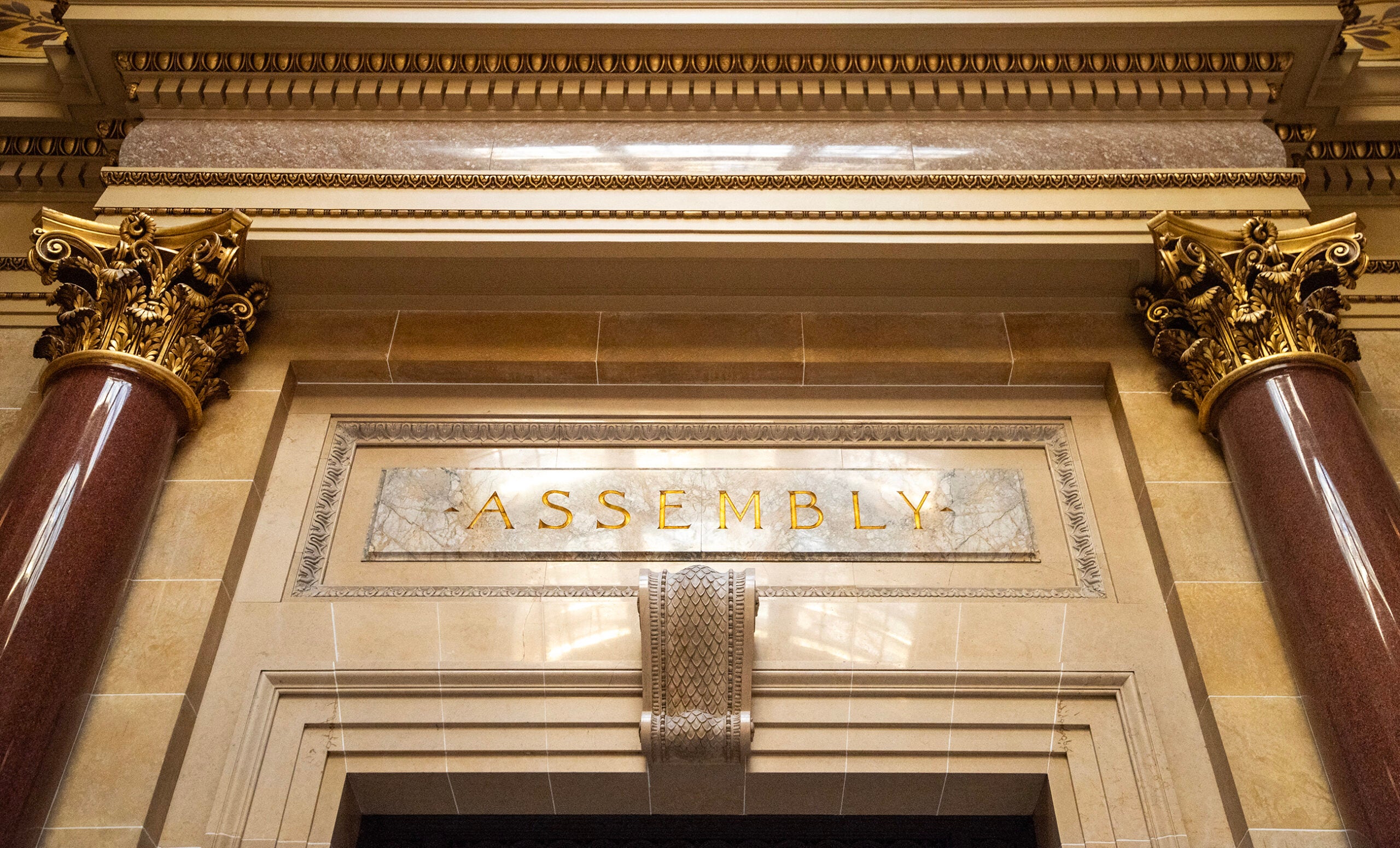State Assembly lawmakers approved a bill Tuesday aimed at tackling some of the social and economic problems spurred by the COVID-19 pandemic in Wisconsin.
The wide-ranging bill was approved on a vote of 97-2.
Two Democrats, state Reps. Jonathan Brostoff and Marisabel Cabrera, both from Milwaukee, voted against the plan. In a joint press release after the vote, the lawmakers argued the bill doesn’t do enough.
News with a little more humanity
WPR’s “Wisconsin Today” newsletter keeps you connected to the state you love without feeling overwhelmed. No paywall. No agenda. No corporate filter.
The bill includes a proposal to lift a one-week waiting period for unemployment insurance in Wisconsin. It would also require health insurers to cover COVID-19 testing and bars those insurers from discriminating against people who have or have had the virus.
It would also give the Legislature’s state budget committee the power to transfer up to $75 million from other state programs to pay for things related to the pandemic.
The vote happened during the Assembly’s first-ever virtual gathering. About half of the chamber’s 99 lawmakers appeared in person in Madison. The other half joined the proceedings through video conferencing software.
In another departure from usual practice in the chamber, only two lawmakers spoke during debate on the bill: Assembly Speaker Robin Vos, R-Rochester, and Assembly Minority Leader Gordon Hintz, D-Oshkosh.
During his remarks, Vos spoke of the need for bipartisanship during such trying times.
“A lot of the things we’re going through don’t know (political) party, they don’t know region, they don’t know ethnicity, they’re just all of us going through it as one humanity,” he said.
He said the legislation was crafted with bipartisan cooperation and included weighing previous proposals from Gov. Tony Evers.
But the speaker did take a moment to criticize one of Evers’ proposals: a plan to give the state Department of Health Services a “sum sufficient” appropriation to respond to the virus. That would amount to a blank check to carry out programs during the pandemic.
Vos said he believes the “vast majority” of spending needs will be accommodated by the roughly $2 billion headed to the state from federal stimulus funds. He argued additional needs could be met by a $75 million fund created in the bill. That fund, under the bill, would be overseen by the state Legislature’s budget committee, which is controlled by Republicans.
“If the administration sees a need where they believe state resources are better utilized than the dollars from the federal government, they can come and make a proper request, so it’s formally vetted, as opposed to just giving a blank check,” Vos said.
Democrats attempted to make a number of changes to the bill, all of which were rejected on party-line votes.
One of those changes would have transitioned all of the state’s remaining 2020 elections to all-mail elections. Under the plan, clerks across the state would be required to send a ballot to every registered voter in Wisconsin.
During his remarks, Hintz said recollections of Wisconsin’s April 7 election, which Evers attempted to postpone amid the pandemic, “will scar us for a while.”
“We have the opportunity to make sure that doesn’t happen again,” Hintz said, urging GOP lawmakers to consider the mail-in voting proposal again.
Democrats also wanted to create a $30 million fund for low-interest loans and grants for small businesses forced to close during the pandemic. They also wanted to direct the state to create a grant program for child care workers, including specific measures to support operations that provide services to health care workers.
“I refuse to admit this is all we can do as a state,” Hintz said. “There’s so much more we need to be doing.”
However, Hintz also spoke of the need for bipartisanship as the state grapples with challenges created by the virus’ spread.
“I came here today not to look for reasons to vote against something, but to try to get behind something that demonstrates that we need to act, we can act, that does at least what we have to do right now,” he said.
Other elements of the approved bill would:
- Bar insurers from charging patients more for out-of-network care related to COVID-19, as long as their regular provider offers those same services.
- Prohibit retailers from accepting returns of food products, personal care products, cleaning products and paper products during the public health emergency.
- Require the Wisconsin Economic Development Corp. to submit a plan to the Legislature and governor for supporting industries hurt by the pandemic, including tourism, manufacturing, agriculture, construction and retail.
- Lift annual testing requirements and teacher assessments for public, private and charter schools across the state.
- Reduce the number of required training hours for nurse aides.
The state Senate is scheduled to take up the plan in its own virtual session on Wednesday.
Wisconsin Public Radio, © Copyright 2025, Board of Regents of the University of Wisconsin System and Wisconsin Educational Communications Board.






